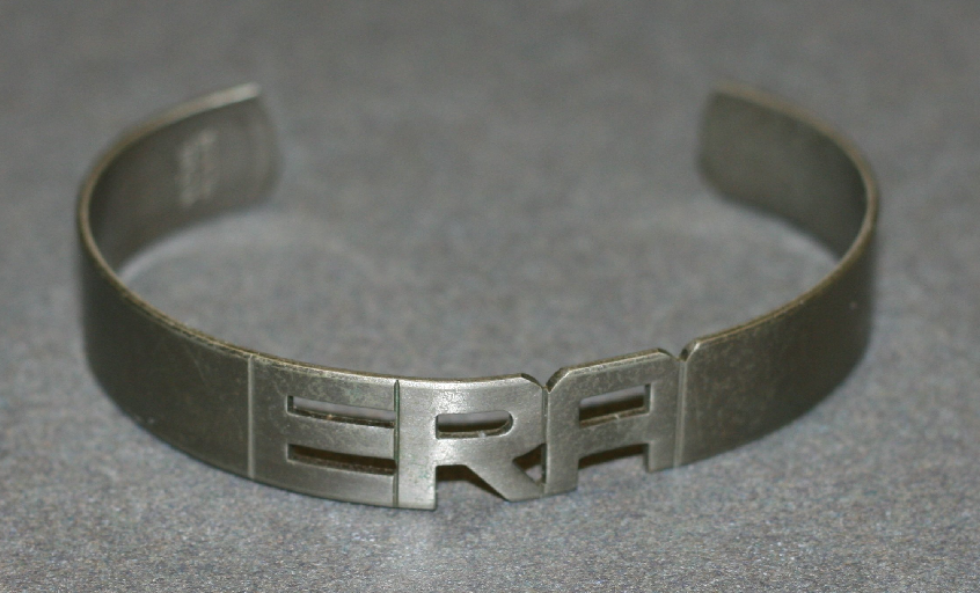
Jan Coggeshall, Galveston’s first female Mayor (1984-1989) was a fierce trailblazer of her time. Elected during a wave of other women mayors in Texas during the 1980s, she was joined by Kathryn Whitmire in Houston and Annette Strauss in Dallas.
Coggeshall dedicated her life to improving Galveston and served on a variety of projects within the community. While her community involvement was vast, she is often remembered for serving on the Rosenberg Library’s Board of Directors and as an active member in the League of Women Voters. This Equal Rights Amendment (ERA) bracelet donated to the Rosenberg Library in 2013 belonged to Coggeshall, an example of her commitment towards equality and improving quality of life for Galveston residents.

Equal Rights Amendment
After ratification of the 19th amendment for woman’s suffrage in 1920, suffragist leader, Alice Paul continued her activism by introducing the ERA Amendment in 1923. Written by Paul, the amendment called for absolute equality stating, “Men and women shall have equal rights throughout the United States and every place subject to its jurisdiction.” Revised in 1943, the new amendment stated “Equality of rights under the law shall not be denied or abridged by the United States or by any state on account of sex.”
Although both the Republican and Democratic parties added the ERA to their platforms, it wasn’t until 1972 when it passed both the House of Representatives and the Senate and then sent to the states for ratification. Unfortunately Congress had placed a time limit of seven years for the ratification process. A total of 38 states were needed to ratify the ERA for it to become law, and only 22 states of the necessary 38 ratified in the first year. Texas was among the first 22 states to ratify during a special session in March of 1972.
After a historic vote in Virginia during January 2020, it became the 38th state to ratify the ERA, decades after the seven year time limit. In January of 2022, President Joe Biden expressed his support for the ERA and stated “I am calling on Congress to act immediately to pass a resolution recognizing ratification of the ERA. As the recently published Office of Legal Counsel memorandum makes clear, there is nothing standing in Congress’s way from doing so.” In fact during March of 2021, The House voted to remove the time limit on the ERA ratification, leaving it to the Senate to decide.
So will we see an Equal Rights Amendment in 2021?
Facts about the ERA
The Treasure of the Month is located on the library’s historic second floor near the East Entrance. It can be viewed during regular library hours, 9:00 a.m. to 5:45 p.m. Monday through Saturday. For museum questions, call 409.763.8854 Ext. 125 or email museum@rosenberg-library.org. For press inquiries, contact the Communications Coordinator.